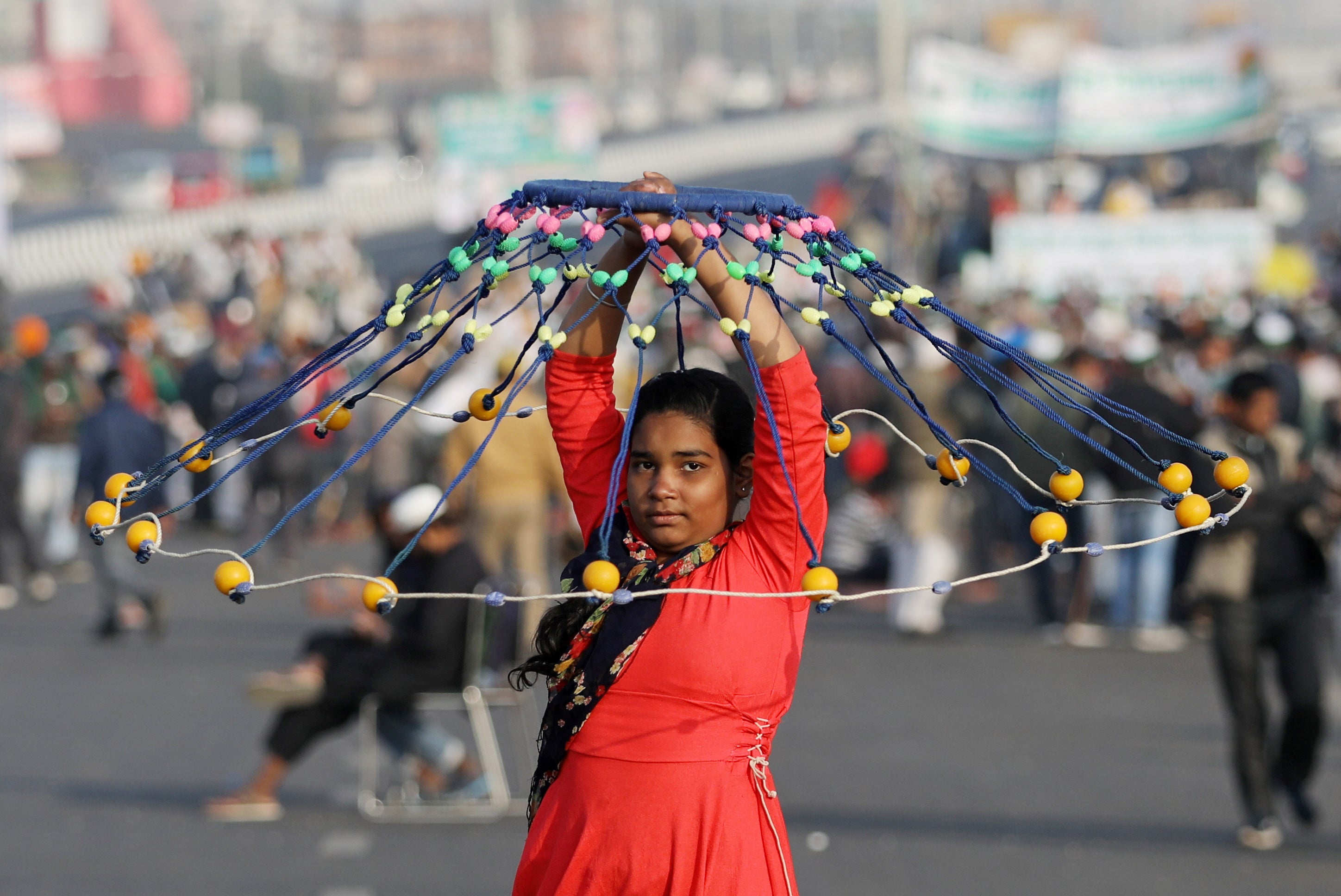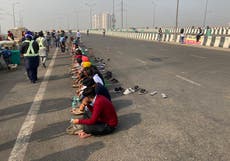India’s farmer protests turn deadly as Supreme Court urges delay to reforms
Thousand of farmers continue to block roads into Delhi as the protest enters 21 days

The massive farmer's protests in India’s national capital have witnessed their first deaths, as the country's supreme court urges the government to put the contentious farm laws on hold.
Farmer organisations claim that lives are being lost as thousands of farmers brave harsh winter conditions to protest at what has effectively become a huge sit-in outside Delhi for 21 days, with one saying as many as 22 have succumbed to the cold.
On Wednesday, Baba Ram Singh, a priest from a gurdwara in Haryana who joined the farmers' protest a day before, died by suicide after he shot himself. In a note, he said he was sacrificing his life "to express anger and pain against the government's injustice," according to Indian media reports.
Just after midnight on Tuesday another farmer, 67-year-old Gurmeet Singh from Mohali, died after falling ill at the Singhu border, which has become the epicentre of the giant protest. Indian media reports quoted people with him saying he was getting chills as the temperature dropped.
And on the same night, two farmers Labh Singh and Gurpreet Singh were killed in a road accident and 9 others travelling with them were injured while they were on their way to Punjab from the protest site late at night.
Several rights groups have raised concerns for the health of the farmers who have been protesting at the border areas of Delhi camping with their tractors and cars in the open, as winter sets in and the temperature dropped to 5 degrees or less in the northern parts.
The protests that began with a standoff with security forces as the farmers tried entering the capital city have so far seen various levels of talks between the ministers and representatives of the protestors, however, no endpoint has been found.
Hearing a series of petitions on demands to remove farmers from the highway, India’s Supreme Court said it may set up an “impartial and independent” committee of agricultural experts and suggested that the government should not take any action to implement the law till the court takes a final decision on the issue.
“We acknowledge the right of farmers to protest but it has to be non-violent,” the bench, also comprising justices AS Bopanna and V Ramasubramanian, said.
The protests have only been growing in numbers as the farmers continue to block more than half of the routes entering the capital city which borders three states. The most impact of the protest is seen on the western side which borders Haryana and Punjab, the state known as agri-hubs of India.
Farmer leaders say over two thousand women have also joined their protests. The first general strike called by the protestors reportedly involved over 25 million people joining in.
The protests centre around the contentious farm laws allowing private companies to buy agricultural produce directly from the farmers bypassing the government-run market system called Mandi . Farmers accuse the bill favours corporates and snatches away the protections provided in the form of minimum support prices and other such metrics.




Join our commenting forum
Join thought-provoking conversations, follow other Independent readers and see their replies
Comments